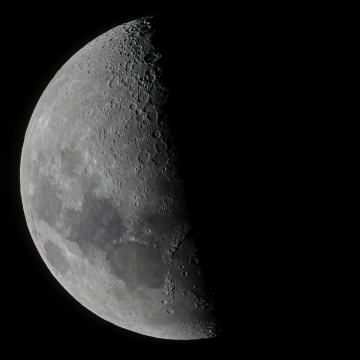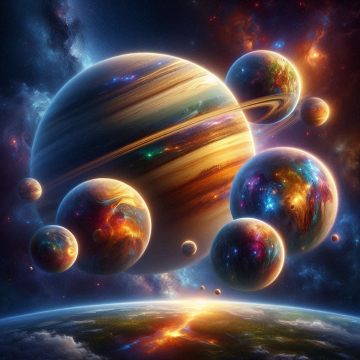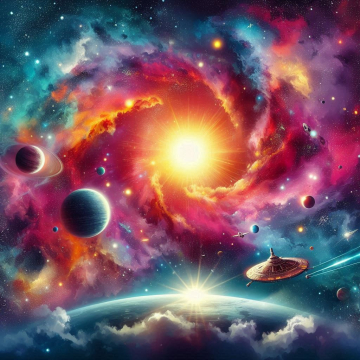The relationship between humans and the Moon has been an object of fascination and reverence throughout history. From ancient civilizations to the modern era, the Moon has exerted a powerful influence on culture, spirituality and traditions. One such tradition, which has endured through the centuries and is experiencing a resurgence today, is the practice of cutting hair and waxing according to the lunar calendar. In this article, we will explore this ancient practice in detail, examining its historical roots, its scientific foundations, and its relevance in the modern era.
The fascination with the moon throughout history:
The Moon has been revered and studied by various cultures for millennia. From the ancient civilizations of Mesopotamia and Egypt to the indigenous traditions of North and South America, the Moon has been considered a symbol of cycle, renewal and mystery. In many cultures, the Moon is also associated with the feminine, fertility and the power of nature.
The basics of the lunar calendar:
The lunar calendar is based on the cycles of the Moon, which goes through different phases over approximately 29.5 days. These phases include the New Moon, the First Quarter, the Full Moon and the Last Quarter. Each phase has its own unique characteristics and energies, which have been observed and studied by cultures around the world.
Haircut according to the lunar calendar:
The practice of cutting hair according to the lunar calendar has deep roots in many ancient cultures. It is believed that cutting hair during certain lunar phases can influence hair growth and health. For example, cutting your hair during the New Moon is said to promote faster, healthier growth, while cutting your hair during the Full Moon can result in slower or weakened growth. This belief is based on the idea that lunar energy can affect biological processes and hair health in similar ways as it does other life forms on Earth.
Hair removal and moon phases:
Like hair cutting, waxing is also considered more effective when done during certain lunar phases. It is believed that the Moon's influence on body hair growth can affect the duration of hair removal results. For example, hair removal performed during the Waning Moon is considered longer lasting, as hair growth is believed to be slower during this lunar phase. On the other hand, hair removal performed during the Full Moon may be less effective, as it is believed that hair tends to grow faster during this phase.
The cultural and spiritual component:
The cultural and spiritual aspect of cutting hair and waxing according to the lunar calendar goes beyond simply following an ancient practice. This tradition reflects a deep connection to the cultural roots of diverse communities around the world. From ancient civilizations to contemporary indigenous cultures, the Moon has been revered as a symbol of the feminine, fertility, and connection to the cosmos. Following the lunar calendar for self-care is a way to honor this ancestral connection and preserve traditions passed down through generations.
Furthermore, the spiritual aspect of this practice lies in the belief in a cosmic energy that influences all aspects of life. The Moon is believed to exert a powerful influence on the body, mind and spirit, and that by aligning with its cycles, one can harmonize with this universal energy. For many, cutting their hair and waxing according to the lunar calendar is more than an act of self-care; It is a sacred ritual that strengthens the connection with the divine and nourishes the soul.
The resurgence in the modern era:
In the modern era, where science and technology dominate much of our daily lives, there is renewed interest in ancient traditions and holistic practices. Following the lunar calendar for self-care is part of this broader movement toward living more consciously and connected to nature. As people look for ways to reduce stress, improve their well-being and live in harmony with the world around them, ancient practices like this take on new relevance.
Exploring the scientific basis:
Although many of the beliefs associated with the lunar calendar may seem superstitious, some studies suggest that there may be a scientific basis for the practice of cutting hair and waxing according to the lunar phases. For example, the Moon has been shown to affect Earth's tides through its gravitational influence, suggesting that it could also have an impact on other biological processes, such as hair and body hair growth. Additionally, some researchers have studied how the Moon and its phases can influence biological rhythms and hormonal cycles, which could have implications for hair growth and the effectiveness of hair removal.
The practice of cutting hair and waxing according to the lunar calendar is an ancient tradition that has endured through the centuries and is now experiencing a resurgence in the modern era. Whether due to its possible scientific bases, its cultural and spiritual aspect, or simply the desire to connect with nature and its cycles, this practice offers a unique and meaningful way to care for oneself. Whether one is a skeptic or a devotee of these practices, the art of cutting hair and waxing according to the lunar calendar remains a fascinating window into a deeper understanding of the natural rhythms of the world and our relationship with them.






